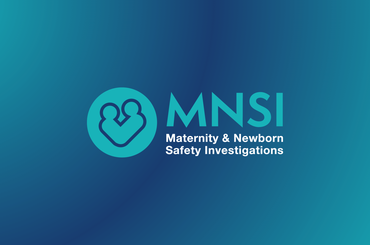This blog post was published when our programme was part of the Healthcare Safety Investigation Branch (HSIB). Find out about HSIB legacy.
A doula, according to Doula UK (2022), provides ‘support in pregnancy, birth and in the postnatal period by providing information, advocacy, and practical and emotional support to the whole family’.
Our interest evolved after several cases came to our attention. We were limited by the Department of Health and Social Care Directions to only investigate NHS care and a small group of us wanted to find out if our experiences were common across the HSIB.
As part of our review, we found that doulas may or may not have received any training, and as they are not trained medical professionals should not take on a clinical role. There is no national data on what percentage of women in England use a doula and there is no regulatory body to support and oversee the care that doulas provide.
We found doulas supporting mothers in 29 of the 2,827 (Jan 2023 figures) completed HSIB maternity investigations. In many cases the care provided by doulas was found to be positive and beneficial to the families who chose their additional support.
Examples from our maternity investigations:
- The doula and the family had a pre-meet with the midwifery team to ensure a shared understanding of roles. The doula was present the birth and was supportive of Mother’s needs, working with the midwives as a team.
- A mother called her doula in early labour when her waters had broken, and the fluid was ‘brown’. She was advised to call her midwife immediately for advice.
- A referral was made to the doula service to provide additional emotional support to the mother. The mother reported that she valued this support and guidance.
However, HSIB found evidence in 12 of the 29 investigations that doulas worked outside of the defined boundaries of their role. The care or advice provided by the doula was considered to have potentially had an influence on the poor outcome for the baby.
Examples from our maternity investigations:
- A doula attended a homebirth to support a mother. The midwifery team reported to HSIB being ‘excluded from the birth team’ by the doula. The doula encouraged and supported the mother to stay at home, which was in direct conflict with the advice from the midwifery team to urgently transfer to the hospital. The significant delay in transfer to hospital contributed to the baby having a severe brain injury.
- Midwives were asked to leave the room to enable private discussions with the doula. On more than one occasion the advice of the doula, conflicted directly with the advice being given by the midwifery staff.
- A mother planning a homebirth was in early labour at home. The baby was moving less than usual. The doula reassured the mother that a change in the baby’s movement pattern was normal in labour as the baby has ‘less room to move’. When the mother attended the hospital later the following day, the baby had died.
Moving forward, we feel that there is a need to explore families understanding of the role of the doula and how this informs their choice to employ a doula. Families also need information on the importance of recognising how their choices in pregnancy and labour may be influenced by a doula. Staff working within maternity units need to understand the role of a doula and the expectation of their role in supporting mothers.
HSIB will be meeting with the Regional Chief Midwives with a view to national learning which supports the introduction of national guidance for health professionals, doulas and mothers combined.
Related news
Improving support after maternal deaths: is national guidance required?
Inspiring inclusion and empowering MNSI investigators

Why it made sense at the time: Local rationality questions for healthcare investigations
